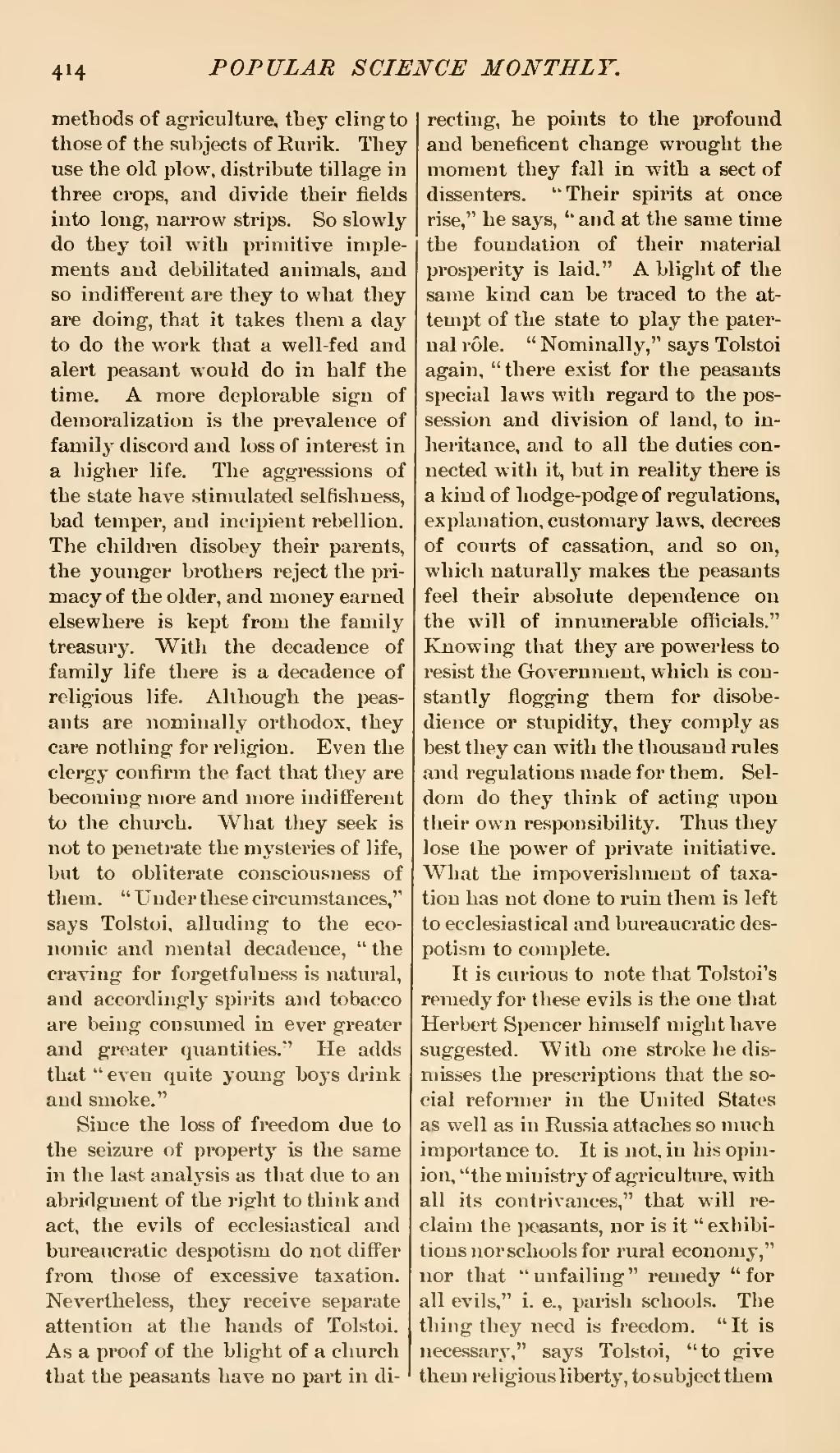methods of agriculture, they cling to those of the subjects of Rurik. They use the old plow, distribute tillage in three crops, and divide their fields into long, narrow strips. So slowly do they toil with primitive implements and debilitated animals, and so indifferent are they to what they are doing, that it takes them a day to do the work that a well-fed and alert peasant would do in half the time. A more deplorable sign of demoralization is the prevalence of family discord and loss of interest in a higher life. The aggressions of the state have stimulated selfishness, bad temper, and incipient rebellion. The children disobey their parents, the younger brothers reject the primacy of the older, and money earned elsewhere is kept from the family treasury. With the decadence of family life there is a decadence of religious life. Although the peasants are nominally orthodox, they care nothing for religion. Even the clergy confirm the fact that they are becoming more and more indifferent to the church. What they seek is not to penetrate the mysteries of life, but to obliterate consciousness of them. "Under these circumstances," says Tolstoi, alluding to the economic and mental decadence," the craving for forgetfulness is natural, and accordingly spirits and tobacco are being consumed in ever greater and greater quantities" He adds that "even quite young boys drink and smoke."
Since the loss of freedom due to the seizure of property is the same in the last analysis as that due to an abridgment of the right to think and act, the evils of ecclesiastical and bureaucratic despotism do not differ from those of excessive taxation. Nevertheless, they receive separate attention at the hands of Tolstoi. As a proof of the blight of a church that the peasants have no part in directing, he points to the profound and beneficent change wrought the moment they fall in with a sect of dissenters. "Their spirits at once rise," he says, "and at the same time the foundation of their material prosperity is laid." A blight of the same kind can be traced to the attempt of the state to play the paternal role. "Nominally," says Tolstoi again, "there exist for the peasants special laws with regard to the possession and division of land, to inheritance, and to all the duties connected with it, but in reality there is a kind of hodge-podge of regulations, explanation, customary laws, decrees of courts of cassation, and so on, which naturally makes the peasants feel their absolute dependence on the will of innumerable officials." Knowing that they are powerless to resist the Government, which is constantly flogging them for disobedience or stupidity, they comply as best they can with the thousand rules and regulations made for them. Seldom do they think of acting upon their own responsibility. Thus they lose the power of private initiative. What the impoverishment of taxation has not done to ruin them is left to ecclesiastical and bureaucratic despotism to complete.
It is curious to note that Tolstoi's remedy for these evils is the one that Herbert Spencer himself might have suggested. With one stroke he dismisses the prescriptions that the social reformer in the United States as well as in Russia attaches so much importance to. It is not, in his opinion, "the ministry of agriculture, with all its contrivances," that will reclaim the peasants, nor is it "exhibitions nor schools for rural economy," nor that "unfailing" remedy "for all evils," i. e., parish schools. The thing they need is freedom. "It is necessary," says Tolstoi, "to give them religious liberty, to subject them
